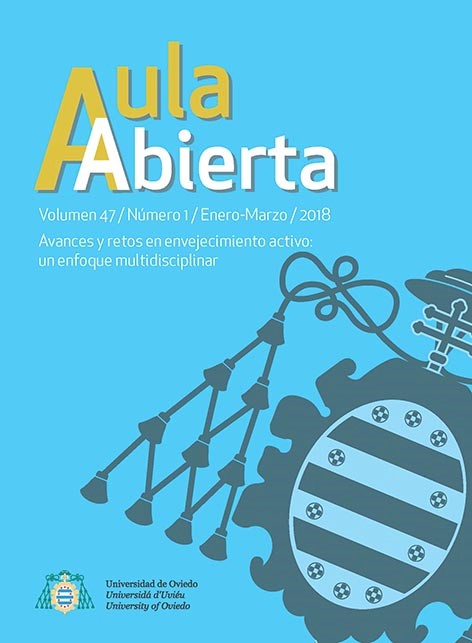Abstract
RESUMEN
La formación a lo largo de la vida y la participación en la sociedad del conocimiento se unen actualmente para facilitar el envejecimiento activo y saludable. El incremento general del uso de Internet y las evidencias científicas acerca de los beneficios físicos y psicológicos que suponen las redes sociales para la inclusión digital y social de las personas mayores, nos lleva a investigar sobre el uso y percepción que tienen de ellas una muestra de 183 mayores matriculados en el Programa Interuniversitario de la Experiencia de la Universidad de Burgos. Se utiliza un método mixto, específicamente una estrategia secuencial transformativa, aplicando un cuestionario ad hoc basado en un instrumento previo. Los resultados apuntan a un espectacular aumento del uso de redes como WhatsApp, Facebook y Twitter en los últimos 5 años, particularmente en el caso de las mujeres. Se encuentran cinco tipos de actitud antes las redes: positiva absoluta, positiva, positiva crítica, negativa y desinterés. Los mayores quieren continuar aprendiendo para manejar estas y otras herramientas con seguridad y privacidad. Esa postura favorable a la tecnología sitúa a los programas educativos de alfabetización mediática dentro de las buenas y necesarias prácticas en la formación permanente de las personas que envejecen.
Palabras Clave: inclusión digital, personas mayores, envejecimiento activo, internet, redes sociales.
ABSTRACT
Lifelong learning and participation in the knowledge society are now linked to facilitate active and healthy ageing. Based on the constant increment on the use of the Internet, and the scientific evidence on the physical and psychological benefits that the social networks yield, we explore the use and perception of these technologies on a sample of 183 elderly from the “Programa Interuniversitario de la Experiencia” from the University of Burgos. We use a mixed method. More specifically, a sequential transformative strategy, presenting an ad-hoc questionnaire based on a previous study. The results indicate a strong growth on the use of social networks like WhatsApp, Facebook, and Twitter in the last five years, particularly, in the case of women. There are five types of attitudes towards networks: absolute positive, positive, critical positive, negative and disinterest. The elderly people want to learn how to use these tools with security and privacy. This attitude towards technology makes educational media literacy programmes a necessary practice within the field of permanent formation.
Keywords: digital inclusion, older adults, active aging, Internet, social networking sites.





